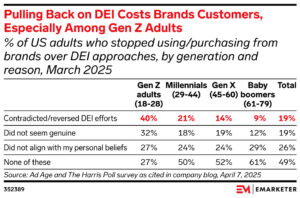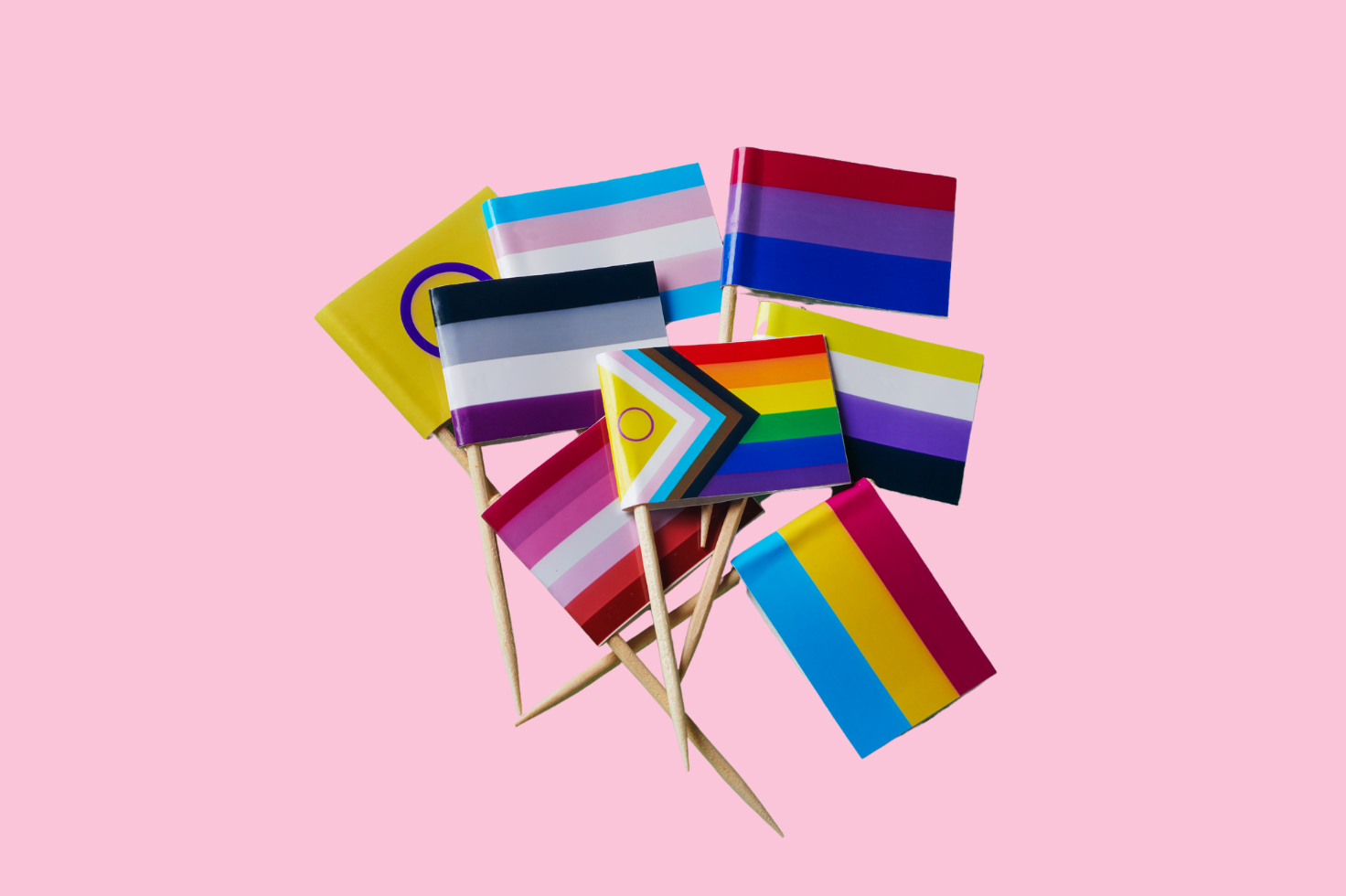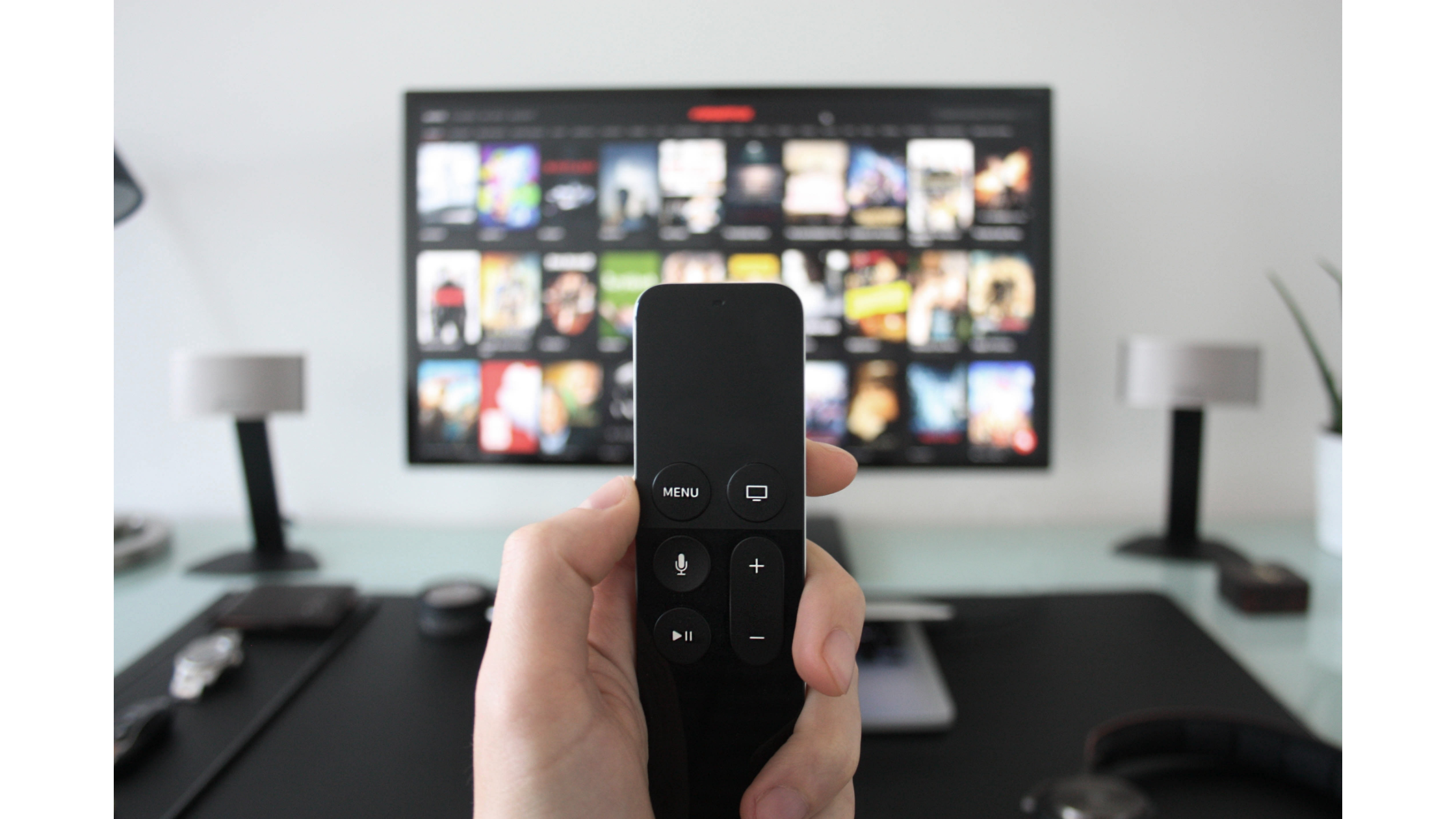As Pride Month is underway, brands worldwide have been navigating their Pride Month advertising efforts differently this year. Here’s a quick snapshot of Pride Month advertising in 2025 and how consumers are responding to it.
Brands are scaling back on Pride initiatives
This year, LGBTQ+ creators are experiencing a significant decline in brand partnerships and sponsorships during Pride Month, traditionally a peak period for such collaborations. A survey by Gravity Research indicates that 39% of brand executives plan to reduce Pride-related marketing in 2025, a sharp increase from 9% in 2024, with none intending to increase spending.
The shift is largely due to growing political pressure and the fear of backlash, particularly from the current US administration. Businesses fear being targeted by federal investigations for diversity, equity, and inclusion (DEI) initiatives, and are also navigating economic uncertainty, especially around tariffs. Still, most cited political pressure—not economic concerns—as the main reason for pulling back according to the Gravity Research survey.
Other brands are staying the course and reaffirming their commitment
A quieter marketing approach to Pride Month does not necessarily mean companies are abandoning support for LGBTQ+ employees or customers. Many companies are instead working behind the scenes to engage their LGBTQ+ employees and strengthen employee recruitment and retention strategies. Just 14% of companies reported plans to reduce internal engagement during Pride Month, according to Gravity Research. Corporate employees are providing counter-pressure to keep brands active on LGBTQ+ issues.
Approximately 41% of surveyed companies said they plan to maintain their current level of Pride support this year, while the rest reported being undecided or uncertain.
Levi Strauss & Co. recently reaffirmed its commitment to DEI, calling it a core part of its brand identity. According to a company spokesperson, less than 1% of shareholders supported a proposal to roll back these initiatives, as reported by Marketing Daily. Similarly, Costco rejected a shareholder effort to challenge its DEI practices, signaling continued support.
Gen Z is shaping the ways brands approach Pride
For Gen Z, support during Pride isn’t about rainbow logos—it’s about consistent, authentic action. They value brands that walk the talk year-round, not just in June. With 70% seeking ethical companies and 80% prioritizing inclusion, according to a 2024 McKinsey Report, Gen Z digs deep into a brand’s values, from leadership diversity to social impact.
This digitally native group (ages 13–28 in 2025) lives on platforms like YouTube, TikTok, and Connected TV—engaging with ads that feel authentic and relevant. Over half have made purchases from social media, especially when brands collaborate genuinely with LGBTQ+ creators.
Nearly 1 in 4 Gen Z adults in the U.S. identify as LGBTQ—more than double the rate of Millennials. With $3.1 trillion in global spending power, Gen Z expects real, year-round allyship. They want inclusion reflected in products, people, and platforms—not just seasonal slogans.
This values-driven generation supports brands that show up consistently—and won’t hesitate to call out those that don’t.
To win Gen Z’s loyalty, brands must be inclusive, transparent, and purpose-driven—not just during Pride, but all year long.
Consumers respond to brands that back away from their DEI efforts
Although brands are under pressure, consumer sentiment may need to be taken into consideration as Pride Month commences. Pulling back from DEI efforts could weaken their connection with the next generation of consumers, many of whom identify as LGBTQ+.
Most consumers still value brands that support social causes like LGBTQ+ inclusion. For every person who supports a move away from DEI, eMarketer reports that four to five would rather support brands that uphold it. In fact, 77% of consumers say they’re willing to walk away from brands that reverse course on diversity.
Among Gen Z—a key driver of digital commerce—40% have already stopped buying from brands that backtracked on DEI. This group places a high priority on inclusion. More broadly, 58% of U.S. adults believe diversity is essential to a company’s success, highlighting its long-term value even amid political shifts.

Final thoughts
Regardless of one’s stance, brands must commit to the principles and causes they support and stand by. Whether it’s the call for more sustainable business practices, diversity and inclusivity, social responsibility is critical for attracting more conscious consumers this 2025. These consumers are highly mindful of their impact on the world and prefer to support brands that reflect their values. To resonate with them, brands must lead with genuine, measurable actions and be transparent about their practices. Building trust—through honesty, concrete efforts, and meaningful connection—is key to running an effective and inclusive campaign.

To see more from illumin, be sure to follow us on X and LinkedIn where we share interesting news and insights from the worlds of ad tech and advertising.











